With temperatures often dipping well below what most would consider comfortable, a quality heating system is essential to be able to survive the cold winters in Victoria—but what’s the most effective way to heat your home or office?
While some heating systems can be inefficient and costly to run, a well-designed heating solution can provide some much-needed respite from the cool winter weather while keeping your energy consumption to a minimum.
If you’re new to the world of home and office heating solutions, this guide will fill you in on everything you need to know about the various types of heating systems, the differences between central and space heating, how to reduce your heating costs and how to operate your heating system safely.
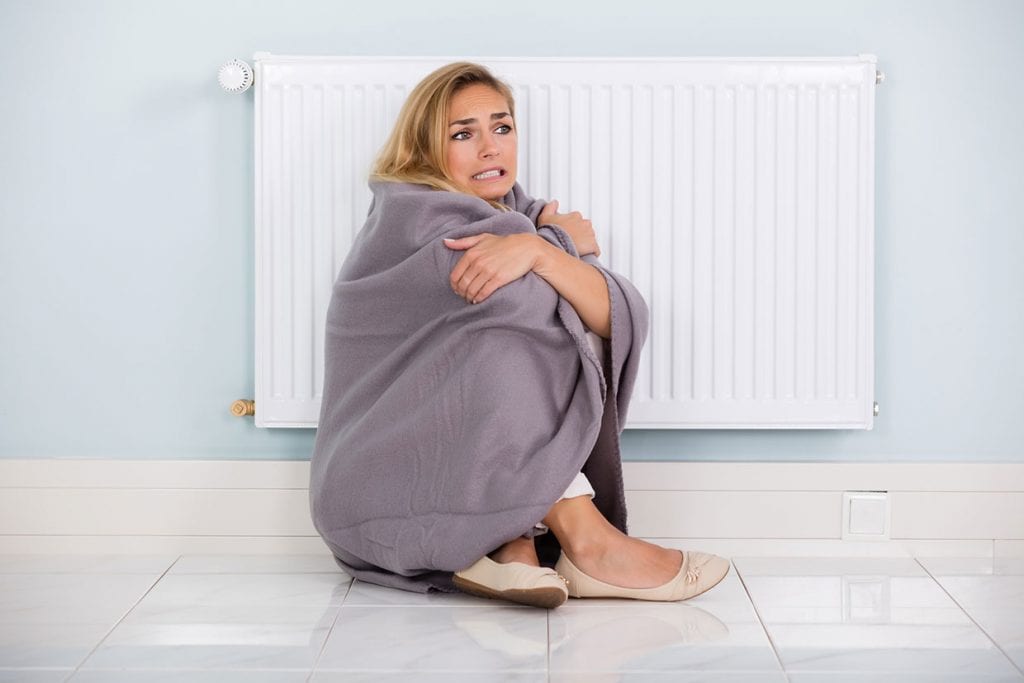
When selecting a heating system for your home or office, you’ll have the option between either a gas or reverse cycle electric-powered system. While both types of heating systems can work effectively to heat your home or workplace, there are some key differences between the two.
Using reticulated natural gas (the gas connected to the building) as their primary source of power, gas heating systems are relatively economical to operate and are very effective at heating up your home quickly and gently (even in cold climates).
As one of the more environmentally-friendly heating methods, many people also find gas heaters produce a more comfortable climate than reverse cycle and other electric heating systems.
Gas heating can be installed as a whole-house ducted system or as individual fixed wall units.
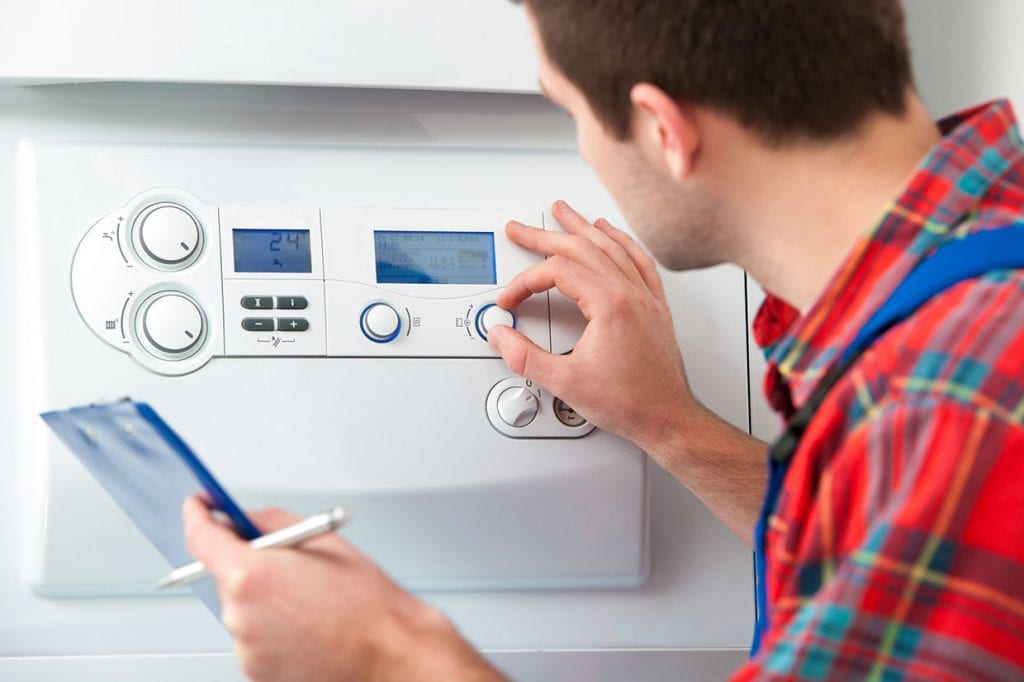
Ducted gas heating systems (also called central heating) draw air from inside the home, before heating it using a process called gas combustion and re-distributing it to the entire home by using an electric-powered fan connected to a network of ducts and vents located throughout the home.
Gas wall furnace or space heaters are another type of gas heating whereby the heater is permanently installed into a single room and draws air in from that room which is then heated and often fan forced out into the space. If sized correctly they may be effective in heating larger open areas.
Gas Log Fires. There are now many brands of gas burning log fires which give the benefit of the soothing visual effect of watching an open fire, without the need to constantly chop wood and without the smoky smell.
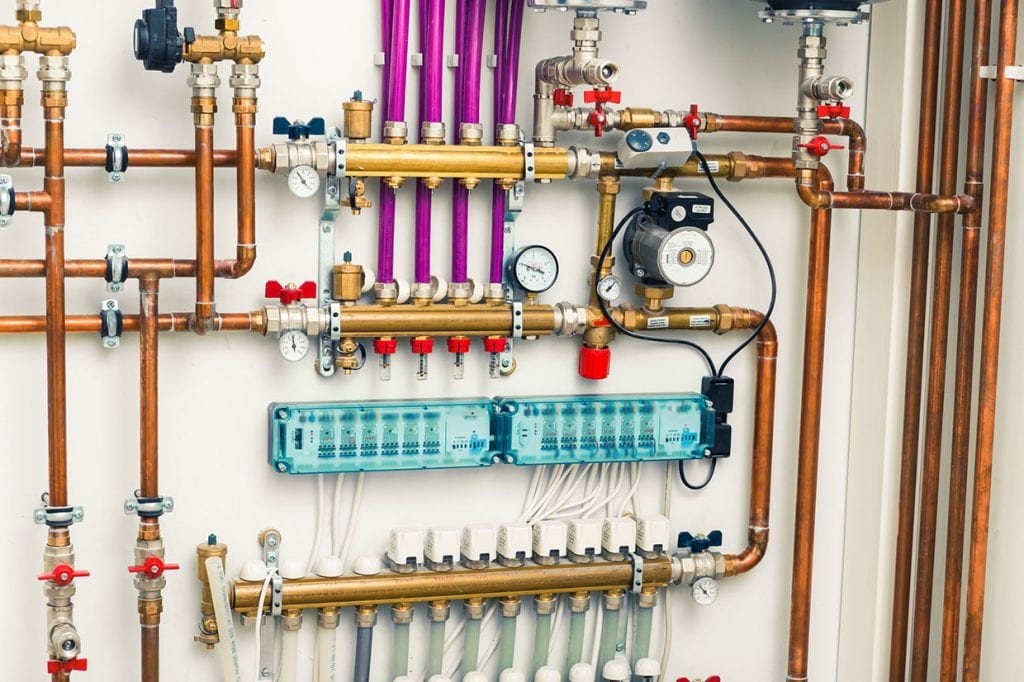
Reverse cycle Air Conditioning systems (also known as heat pumps) are powered using electricity, and offer the added benefit of providing both heating and cooling.
Reverse cycle systems can be installed as a ducted system or as individual split system units.
Ducted reverse cycle systems use a large reverse cycle air conditioner which sucks air from outside the home and heats it using a reverse refrigeration cycle, before distributing it to a network of ducts and vents throughout the whole home. Ducted reverse cycle systems are often a popular choice for larger homes, offices and workplaces.
Split system air conditioners comprise of two units (one inside and one outside), and can be used to heat or cool a single room.
When choosing a heating system, it’s important to consider if you need a ‘whole home’ or ‘single room’ solution.
It’s important to design a heating system that is fit for purpose, based on the individual home or space and your personal requirements. It is important to consider many factors including the upfront cost, zoning, energy efficiency and ecological impact.
While space heating may cost less upfront, it may prove to be the less economical option if you regularly need to heat your entire home.
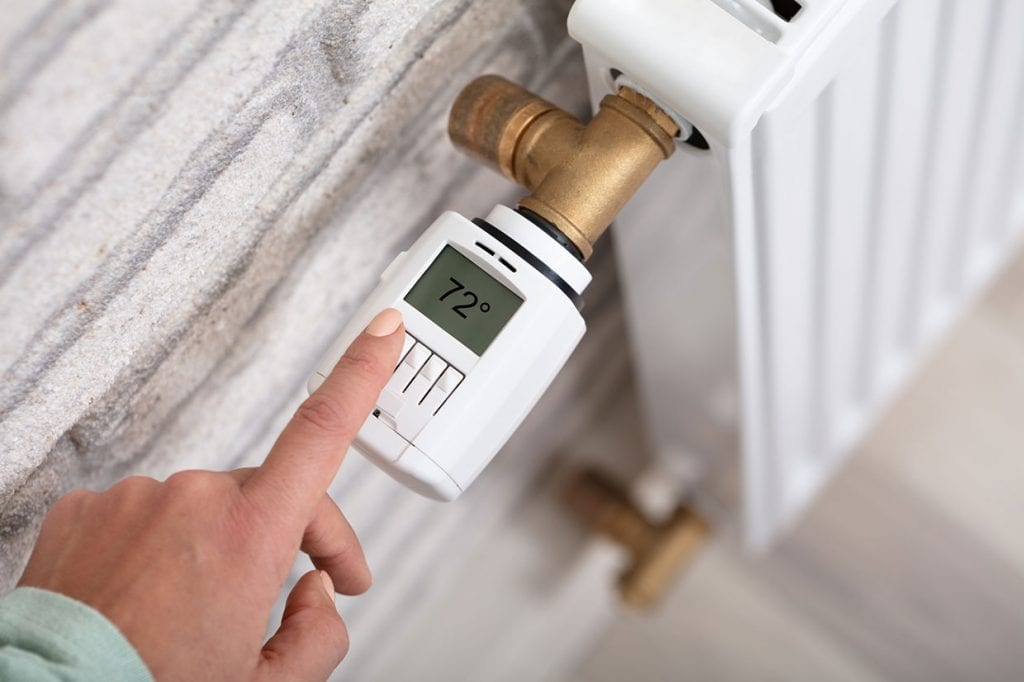
If you need a ‘whole home’ heating solution, a central ducted gas or ducted reverse cycle air conditioning system is usually most effective.
Ducted systems are usually installed when a home is being built, however there is the option of adding them later if required, or alternatively adding them to an older home. Installing a ducted system will involve a larger upfront cost, however they are a significantly more cost effective and environmentally-friendly option compared to using multiple portable electric heaters.
Ducted systems are discreet as all the ducts are hidden behind walls and ceilings, leaving only the vents visible. Modern ducted systems can also be zoned, allowing you to only heat (or cool) selected areas of the home if desired – saving on costs and energy consumption when using them as you are not warming rooms or areas that are not being used.
You can generally expect a ducted reverse cycle system to cost significantly more to install than a ducted gas heating system (often more than double the price), however it’s likely to be a more energy efficient and cost effective option in the long-term. Plus you get year-round indoor comfort as it will also provide cooling on hot summer days.
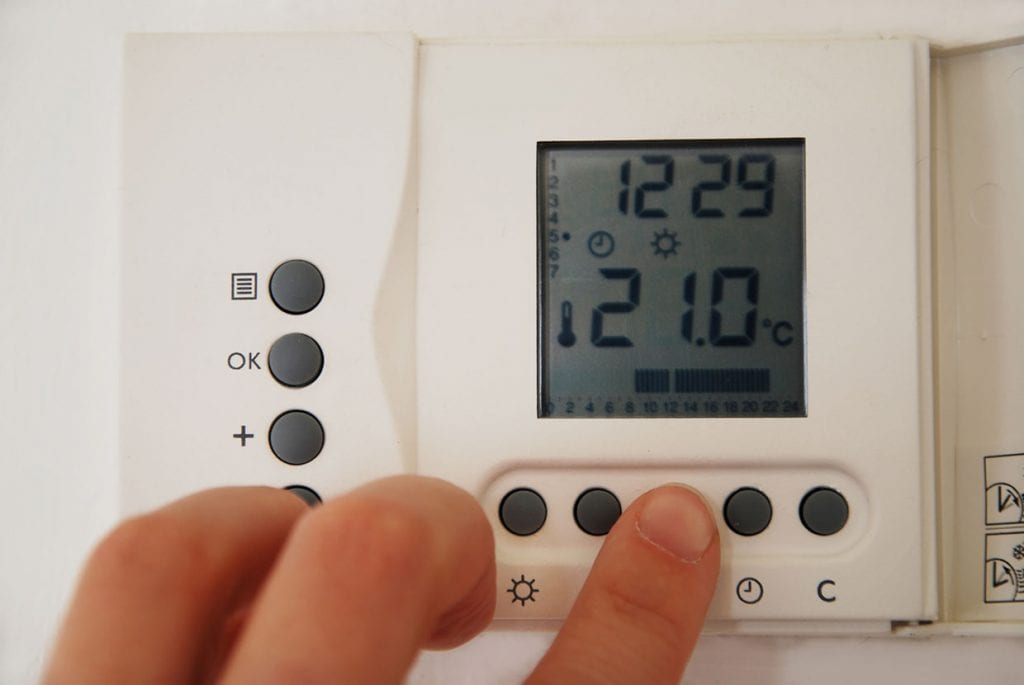
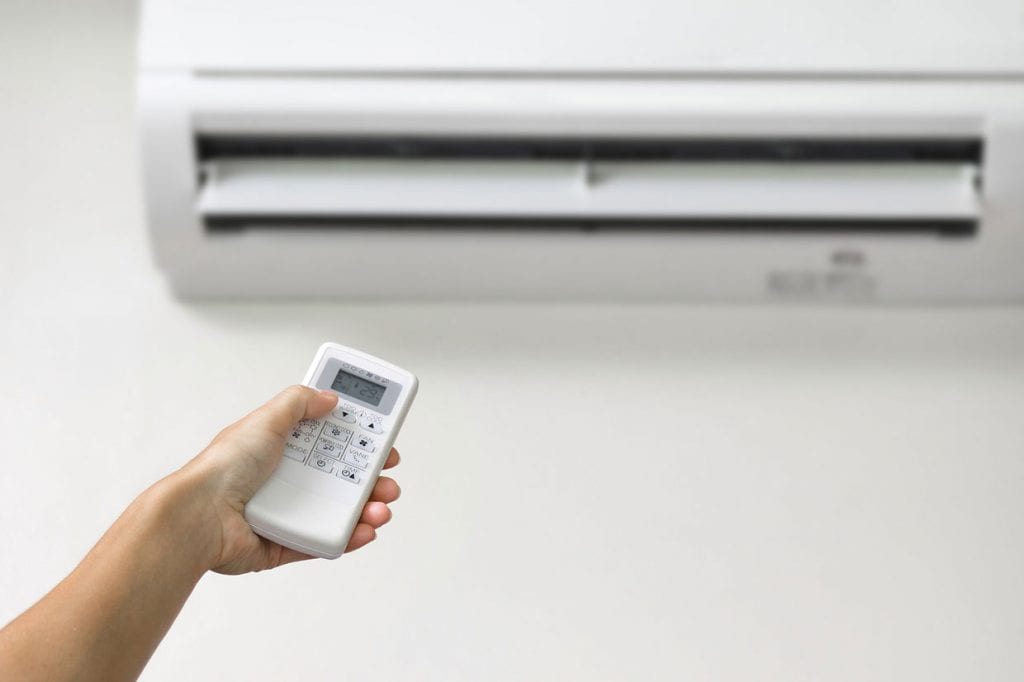
If you only need to heat individual rooms in your home, space heaters, reverse cycle split systems, gas wall furnaces or gas log fires are all effective and economical options.
Split-systems are often a good solution as they’re quiet, economical, easy to install (they don’t require any ducts or vents to be installed throughout the home), and provide the added benefit of cooling during the warmer months.
Gas wall furnace heaters can also be effective if you don’t require cooling, as they will heat a room quickly, are relatively affordable to install and are one of the more eco-friendly heating options.
Portable electric heaters: Low upfront cost and effective heat producers, however they are generally very expensive to operate and produce a high volume of greenhouse emissions.
Electric panel heaters: Panel heaters are reasonably energy efficient, however they produce less intense heat than other heating methods. Some are portable, while others can be installed as a permanent fixture.
Gas log fires: Economical to run and provide aesthetic benefits, however they don’t produce a lot of heat. While they can be good as a supplementary heat source, they won’t be very effective as a primary heat source.
Wood fires: Great for creating ambience, but are generally prone to high heat loss and can contribute to air pollution.
Even the most efficient heating systems are capable of racking up big energy bills if they’re not used effectively or serviced regularly.
The cost of operating a heating system to keep your home nice and warm when the temperature dips can be significant. There are however a few things you can do to help reduce your energy consumption and keep costs down:
When designing your heating system, place vents in locations where they’ll be most efficient at heating your home. If you can, avoid placing vents near drafts and ensure that the thermostat is located in a central location.
See if there is anything you can do to improve the thermal performance of your home without using your heater. Things like eliminating any drafts, improving insulation or installing thicker curtains and blinds can make a dramatic difference.
If you’re operating an older ducted system which doesn’t have zoning capabilities, manually close any vents in rooms which you don’t need to warm to reduce your energy consumption.
Your heater will operate most efficiently when it’s left set to a consistent temperature (between 18 and 20°C), rather than setting it at a higher temperature and frequently switching it on and off (known as short cycling). It’s also important to remember that every extra degree you increase the temperature on your thermostat can add up to 10% to your energy usage.
If you plan to stay in your home for a while, it’s important to take energy efficiency into account when choosing a heating system. Do the maths to work out the likely operating costs, as systems which cost more upfront are often the more cost-effective option in the longer-term. Most good heating installers can help you to weigh up the costs.
If you’re operating an electric-powered heating system, consider if you could install solar panels to offset the running costs.
Have the system professionally installed by a licensed technician
Ensure the system is serviced at least every 18-24 months. This will check for things such as leaking Carbon Monoxide (CO) among other things.
Regularly have the filters checked to ensure they are clean

Poorly designed or badly maintained heating systems can lead to “sick house syndrome,” This can lead to household members experiencing a range of health issues such as asthma, respiratory disease, bronchitis, headaches and cold and flu-like symptoms – or even more frighteningly, CO poisoning which can be deadly.
When your heating system is being installed, ensure it’s designed to incorporate fresh air flow, including filters on the return air and adequately sized ducts to accommodate them. If a heating system does not provide ample ventilation it can lead to a build-up of allergens, facilitate the formation of mould and prevent any carbon dioxide or toxic Volatile Organic Compounds (VOCs) from escaping.
When you have your heating system serviced, the technician should clean or replace any old or damaged filters. If the filters in your heating system are not cleaned or replaced regularly, the fans can become dirty and clogged, also allowing impurities to circulate in the air in your home. Regular servicing can also improve the efficiency, performance and lifespan of your heating system.
When servicing a gas heater, the technician will also check the system for Carbon Monoxide leaks. This is extremely important, as exposure to carbon monoxide can lead to a range of serious health issues including breathing difficulties, impaired judgement and memory, damage to the nervous system, cardiac trauma, brain damage, coma and even death.
To ensure your heating system is healthy and safe to use, make sure you choose a licensed technician to service your system (or a qualified gasfitter for gas heating systems). You can check if a practitioner is licensed through the Victorian Building Authority website.
It can be difficult to know what to look for when choosing an installer for your heating system. To make it easier, here are some things you can expect a reputable and reliable installer to do:
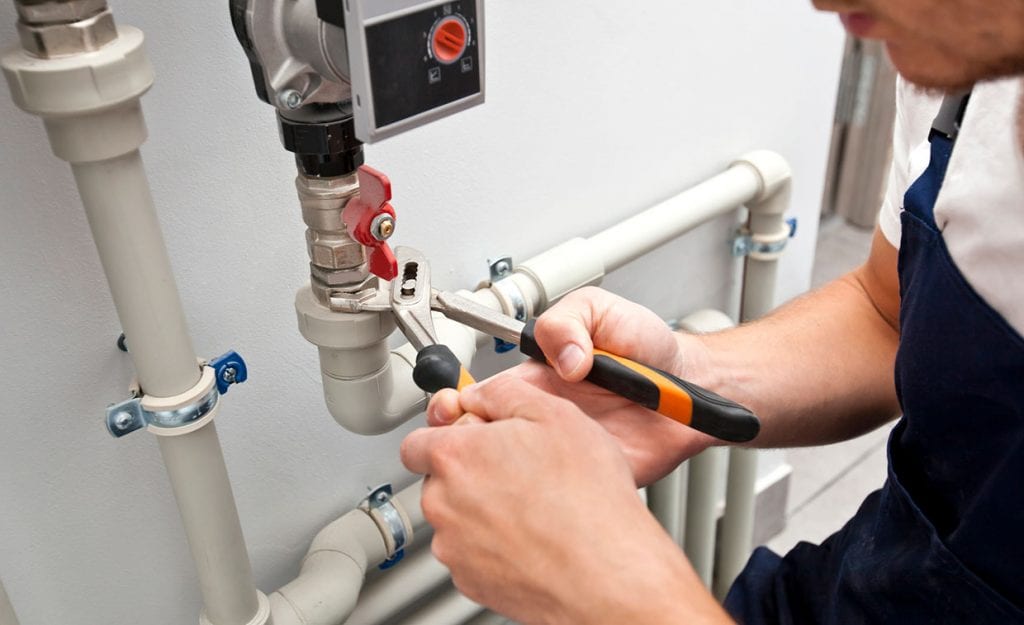
Visit your home before providing a quote. If an installer is willing to provide a quote without first seeing the home or site plans, it’s a good indication they may cut corners when installing the system.
Recommend a heating system based on your individual needs and be willing to thoroughly explain the reasoning behind their recommended system design.
Act as a single point of contact, assuming direct responsibility for the work of any subcontractors they use, including verifying that they have the correct insurances, police checks and industry licensing before they work on your home.
At HeatCool, we take pride in providing real value to our customers with personalised service, expert advice and quality workmanship.
Find out more about our heating solutions or contact us to arrange a detailed heating assessment and quote for your home or office.